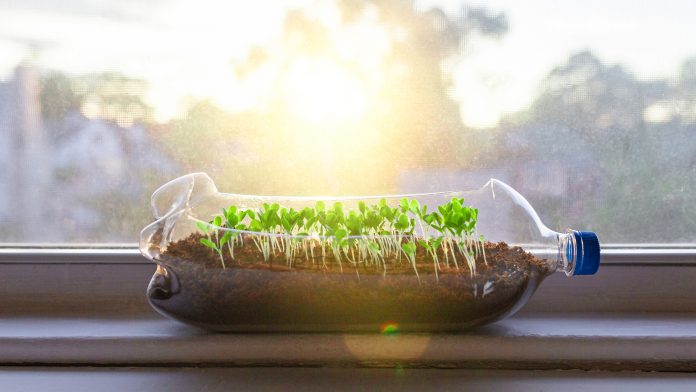A team from Nanyang Technological University (NTU) and Harvard T.H. Chan School of Public Health, have developed a food packaging that that is biodegradable, sustainable and kills microbes that are harmful to humans.
The food packaging
Professor Philip Demokritou, Adjunct Professor of Environmental Health at Harvard Chan School, and co-lead on the study, said: “Food safety and waste have become a major societal challenge of our times with immense public health and economic impact which compromises food security. One of the most efficient ways to enhance food safety and reduce spoilage and waste is to develop efficient biodegradable non-toxic food packaging materials.
“In this study, we used nature-derived compounds including biopolymers, non-toxic solvents, and nature-inspired antimicrobials and develop scalable systems to synthesise smart antimicrobial materials which can be used not only to enhance food safety and quality but also to eliminate the harm to the environment and health and reduce the use of non-biodegradable plastics at global level and promote sustainable agri-food systems.”
The water-proof food packaging is made from a type of corn protein called zein, starch and other naturally derived biopolymers, infused with a cocktail of natural antimicrobial compounds. These include oil from thyme, a common herb used in cooking, and citric acid, which is commonly found in citrus fruits.
The packaging is designed to release the necessary miniscule amounts of antimicrobial compounds in response to the presence of additional humidity or bacteria. This ensures that the packaging can endure several exposures, and last for months.
These properties were tested in lab experiments; when exposed to an increase in humidity or enzymes from harmful bacteria, the fibres in the food packaging have been shown to release the natural antimicrobial compounds, killing common dangerous bacteria that contaminate food, such as E. Coli and Listeria, as well as fungi.
Additionally, as the compounds combat any bacteria that grow on the surface of the food packaging, as well as on the food product itself, scientists suggest that it has the potential to be used for a large variety of products, including ready-to-eat foods, raw meat, fruits, and vegetables. This is highlighted by an experiment conducted by the researchers, where strawberries that were wrapped in the developed food packaging successfully stayed fresh for seven days before developing mould, compared to counterparts that were kept in mainstream fruit plastic boxes, which only stayed fresh for four days.
Professor Mary Chan, Director of NTU’s Centre of Antimicrobial Bioengineering, and co-lead on the project, said: “This invention would serve as a better option for packaging in the food industry, as it has demonstrated superior antimicrobial qualities in combatting a myriad of food-related bacteria and fungi that could be harmful to humans. The packaging can be applied to various produces such as fish, meat, vegetables, and fruits. The smart release of antimicrobials only when bacteria or high humidity is present, provides protection only when needed thus minimising the use of chemicals and preserving the natural composition of foods packaged.”
Impact on waste
The packaging industry is the largest growing consumer of synthetic plastics derived from fossil fuels, with food packaging plastics accounting for the bulk of plastic waste that are polluting the environment. In Singapore alone, packaging is a major source of waste, with data from Singapore’s National Environment Agency showing that out of the 1.76 million tonnes of waste disposed of by domestic sources in 2018, one third of it was packaging waste, and 55% was plastic.
In comparison, the smart food packaging material could serve as an alternative to cut down on the amount of plastic waste, as it is biodegradable. Chan explained: “The sustainable and biodegradable active food packaging, which has inbuilt technology to keep bacteria and fungus at bay, is of great importance to the food industry. It could serve as an environmentally friendly alternative to petroleum-based polymers used in commercial food packaging, such as plastic, which have a significant negative environmental impact.”
“Due to the globalisation of food supply and attitude shift towards a healthier lifestyle and environmentally friendly food packaging, there is a need to develop biodegradable, non-toxic and smart/responsive materials to enhance food safety and quality.
“Development of scalable synthesis platforms for developing food packaging materials that are composed of nature derived, biodegradable biopolymers and nature inspired antimicrobials, coupled with stimuli triggered approaches will meet the emerging societal needs to reduce food waste and enhance food safety and quality,” concluded Demokritou.





